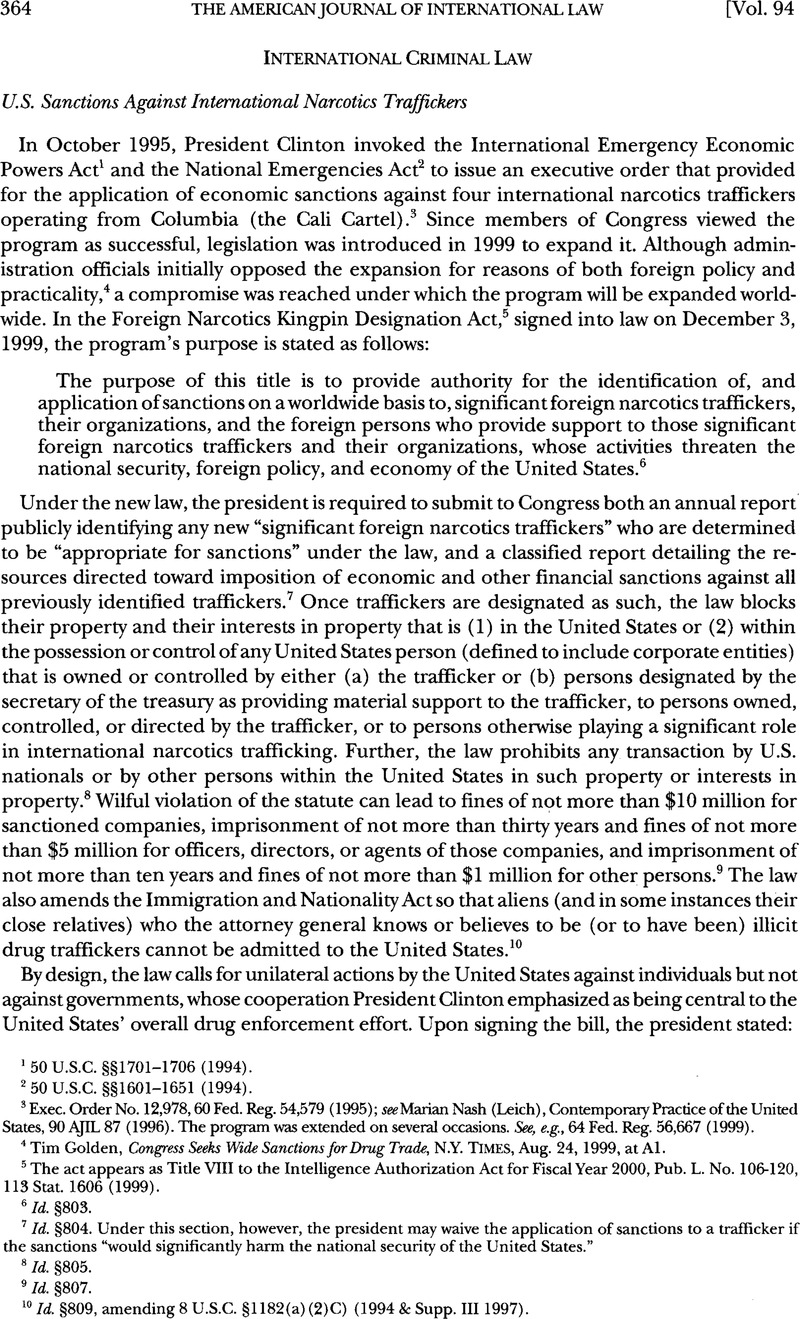Published online by Cambridge University Press: 10 March 2017

1 50 U.S.C. §§1701-1706 (1994).
2 50 U.S.C. §§1601-1651 (1994).
3 Exec. Order No. 12,978,60 Fed. Reg. 54,579 (1995); see Marian Nash (Leich), Contemporary Practice of the United States, 90 AJIL 87 (1996). The program was extended on several occasions. See, e.g., 64 Fed. Reg. 56,667 (1999).
4 Tim Golden, Congress Seeks Wide Sanctions for Drug Trade, N.Y. TIMES, Aug. 24, 1999, at Al.
5 The act appears as Title VIII to the Intelligence Authorization Act for Fiscal Year 2000, Pub. L. No. 106-120, 113 Stat. 1606 (1999).
6 Id. §803.
7 Id. §804. Under this section, however, the president may waive the application of sanctions to a trafficker if the sanctions “would significantly harm the national security of the United States.”
8 Id. §805.
9 Id. §807.
10 Id. §809, amending 8 U.S.C. §1182(a) (2)C) (1994 & Supp. Ill 1997).
11 Statement on Signing the Intelligence Authorization Act for Fiscal Year 2000, 35 WEEKLY Com p. PRES. Doc. 2512 (Dec. 6, 1999).